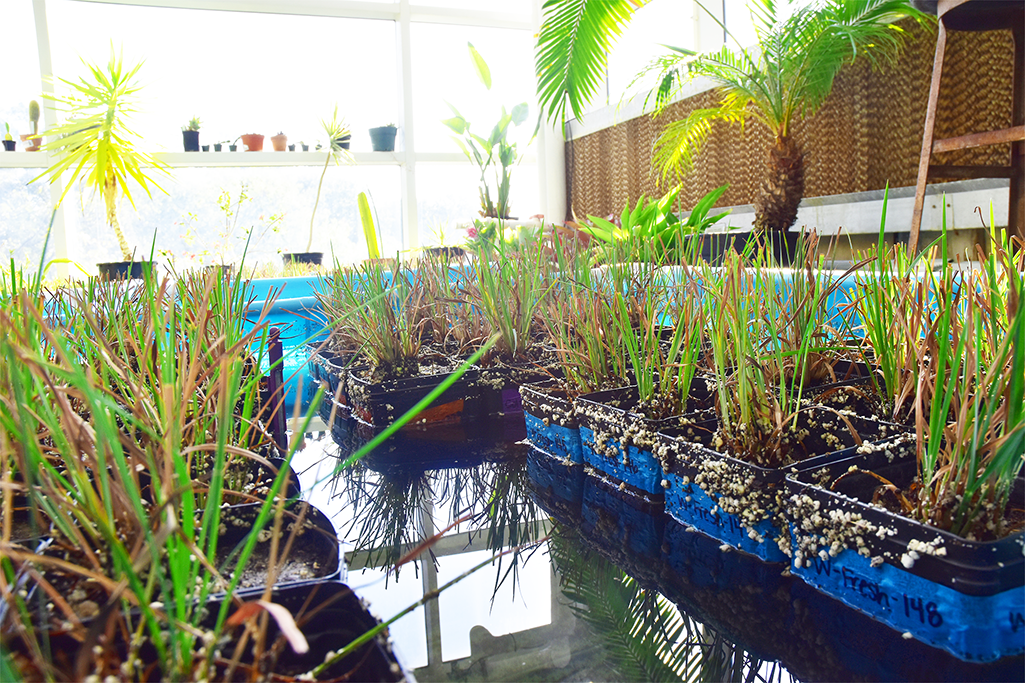
As part of a National Science Foundation Study through the Council of Undergraduate Research, The Departments of Biology and Chemistry & Biochemistry redesigned their curriculum so scientific research is infused into classes from the time students take their first introductory course until they take advanced courses during their final year.
Science education research demonstrates that these teaching methods help students feel they are part of the process of science experimentation and learn science content through the process of performing research more effectively than traditional lectures and lab courses.
To take it a step further, the Department of Biology has developed laboratory modules that are directly aligned with faculty research programs. For example, in BIO 112 Principles of Biology II, students perform research on water quality in campus wetlands and creeks using the waterflea Daphnia as an environmental indicator, aligned with ecology faculty research programs. BIO 315 Ecology and Evolution lab, students perform research on environmental stress tolerance of grasses, research aligned with plant ecology research programs.
In the majority of our courses, whether they be lectures or laboratory experiences, students experience some type of active learning focusing on experiencing biological research that is performed and is changing our understanding of our natural world.
At UNCG, our faculty are committed to teaching and student success at the highest levels. Our innovative curriculum development is recognized nationally as an example of how to infuse scientifically proven, highly effective pedagogical approaches throughout the curriculum.